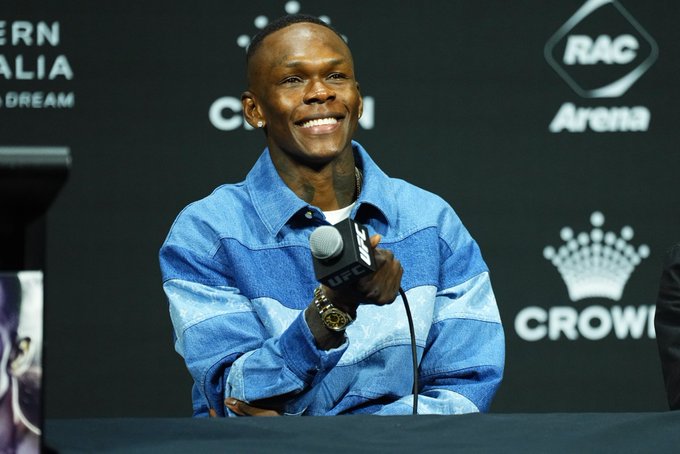Israel Adesanya and Dricus du Plessis, two of the continent’s top fighters, came together after a fiercely contested bout at UFC 305 to declare Africa the real winner of the night.
The fight, held in Perth, Australia, was the first all-African title bout in UFC history. Nigeria-born Adesanya, a former two-time UFC middleweight champion, faced off against South Africa’s Du Plessis, the current titleholder. The lead-up to the match was filled with tension and heated exchanges, especially after Du Plessis declared himself the UFC’s “first real African champion.” This comment didn’t sit well with Adesanya, who, along with fellow African fighters Kamaru Usman and Francis Ngannou, has long represented the continent on the global stage.
Du Plessis later clarified his statement, explaining that he was the first champion who still lives in Africa, unlike Adesanya, Usman, and Ngannou, who have all moved abroad. Despite this clarification, the tension remained, and the pre-fight press conference was charged with bitterness.
However, after an intense match in which Du Plessis submitted the 35-year-old Adesanya to retain his middleweight title, both fighters showed respect for each other. They acknowledged that their fight had a larger significance beyond their personal rivalry.
“I think Africa won tonight,” Adesanya said in a post-fight interview. He praised Du Plessis, stating that the South African fighter would inspire the next generation of African fighters, just as he, Usman, and Ngannou had done before.
Du Plessis echoed this sentiment. After the fight, he handed Adesanya his jacket, which was embroidered with the South African flag. This gesture was meant as a sign of respect, regardless of their personal differences. “Izzy and I won’t be friends because on a personal level we don’t see eye to eye, but warrior to warrior, after spending that time in the octagon with him, you can’t not respect that man,” Du Plessis said. He added that he had always intended to give Adesanya the jacket, win or lose, as a reminder of this historic all-African main event.
Du Plessis also referenced Nelson Mandela, the former South African president and anti-apartheid icon, to highlight the unifying power of sports. “The great Nelson Mandela said, ‘sport unites people in a way that politics can never do,’ and that is a fact. That’s what you saw tonight,” Du Plessis said.
Following the fight, there has been increased speculation about the UFC hosting an event in Africa. Despite the growing popularity of the sport on the continent, the UFC has yet to hold an event there. However, UFC executive David Shaw suggested that this could change soon, possibly as early as 2025.
Shaw mentioned that the UFC is keen to make a strong first impression when it finally comes to Africa. He referenced recent events, such as UFC 304 in Manchester and the Perth event, both of which were scheduled at unusual times to accommodate American audiences. He indicated that if the UFC were to hold an event in South Africa, it might follow a similar schedule to cater to global viewers.
“The Dricus situation is tough; he’s a champion, so are we going to take a pay-per-view there? We’ve just done Manchester, so it’s possible, but we also want to make a good first impression,” Shaw said. He acknowledged the challenges of hosting an event in Africa for the first time, particularly concerning the timing and logistical arrangements.
For African MMA fans, this is an exciting prospect. The success of fighters like Adesanya, Du Plessis, Usman, and Ngannou has already put African MMA on the map. A UFC event in Africa would not only celebrate these fighters but also inspire a new generation of talent across the continent.

